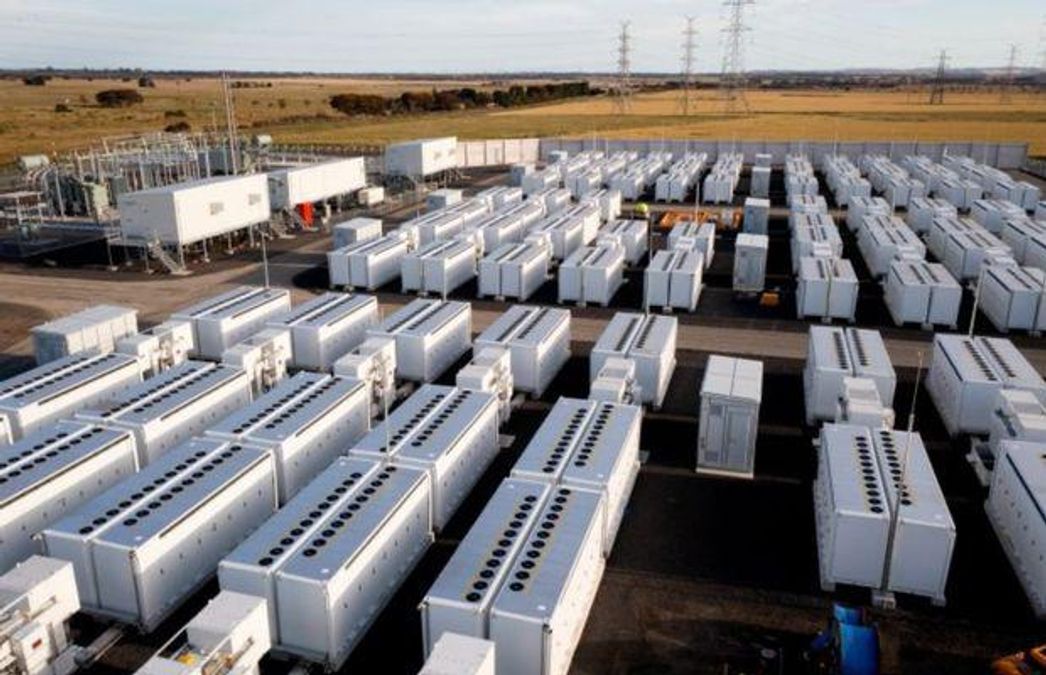❓ 1. What is BESS? How does it work?
A Battery Energy Storage System (BESS) is a technology that uses batteries to store energy, allowing electricity to be charged (stored) when supply exceeds demand and discharged when demand is high or energy supply is limited. BESS systems often use lithium-ion battery technology, which offers fast response time, long lifespan, and suitability for both industrial and residential applications.
👉 How BESS Works:
-
Charge: During times of energy surplus—such as when solar or wind power generation exceeds consumption during the day—BESS absorbs the excess energy.
-
Discharge: During high-demand periods—such as at night or peak hours—BESS releases stored energy back to the grid or directly to the loads.
Benefits: Reduces energy loss, lowers peak-hour electricity costs, and optimizes power systems without requiring extensive expansion of traditional power infrastructure.
❓ 2. How does BESS help stabilize electricity prices under Vietnam’s time-based pricing system?
In Vietnam, electricity prices for commercial and industrial users are divided into three time-of-use tiers: off-peak, normal, and peak hours. For example, during evening hours (e.g., 5–8 PM), energy prices are higher due to high demand and lack of solar power.
With BESS:
-
Businesses can charge energy during off-peak hours or when renewable power generation is high (e.g., midday).
-
Then discharge power during peak hours, when grid electricity prices are most expensive.
➡️ As a result, BESS helps reduce electricity costs, minimize dependency on peak pricing, and stabilize long-term operating expenses.
❓ 3. Can the economic benefits of BESS be quantified?
✅ Yes. Both research and real-world data show that BESS delivers significant economic value:
-
A 100 MW/100 MWh BESS system installed in Germany (2020–2022) helped reduce the daily average electricity price spread by 5%.
-
In Europe, deploying 15 GW/60 GWh of BESS by 2030 is expected to:
-
Lower wholesale electricity prices by €1/MWh
-
Avoid the need to build 9 GW of new gas-fired power plants
-
Reduce grid infrastructure costs
-
-
By 2050, an estimated 72 GW of BESS could generate €12 billion in social welfare benefits through improved price stability, reduced grid investments, and lower emissions.
❓ 4. How does BESS support solar and wind power development in Vietnam?
Vietnam faces frequent curtailment problems, where excess solar or wind power is wasted because the grid cannot absorb the electricity in time. This leads to investment losses and reduced profits for renewable energy developers.
BESS helps by:
-
Charging automatically during excess power generation, reducing grid overload.
-
Discharging during high demand, increasing the share of renewables consumed.
-
Enabling solar plants to supply energy at night and open up new peak-hour revenue models (e.g., peak shaving).
➡️ This flexibility makes renewables more financially viable, supports grid stability, and reduces pressure on EVN to balance supply and demand.
❓ 5. Can BESS completely replace thermal power plants?
❌ Not entirely. Currently, BESS provides short-duration energy storage (from a few minutes to a few hours), ideal for daily balancing of renewable fluctuations.
For longer-duration needs (several hours or days), power systems still require sources like:
-
Pumped hydro storage
-
Gas peaker plants
-
Cross-border power imports (interconnects)
The key advantage of BESS lies in its fast response and ability to support grid frequency and voltage—something traditional coal power plants cannot do.
❓ 6. What BESS solutions does GG Industries (GGI) offer?
As a pioneer in Vietnam’s energy storage sector, GG Industries (GGI) delivers end-to-end BESS solutions for:
-
Commercial & industrial businesses (C&I) looking to reduce peak-hour electricity costs and enhance power reliability
-
Residential and renewable energy projects (solar, wind)
-
Industrial parks aiming for energy independence and cost control
Our services include:
-
Technical consulting & economic feasibility analysis
-
Custom system design based on load requirements
-
Equipment supply, installation & maintenance
-
Integration with EMS (Energy Management System) for revenue optimization
📞 Contact GGI today for expert consultation and hands-on experience with our cutting-edge BESS solutions.
Conclusion
As Vietnam accelerates its energy transition, BESS is becoming a vital infrastructure to:
-
Ensure reliable and sustainable electricity
-
Reduce energy costs and protect the grid
-
Maximize the value of renewable energy investments
GG Industries is committed to supporting businesses, industrial zones, and energy developers with smart storage technologies—building the foundation for the grid of the future.




